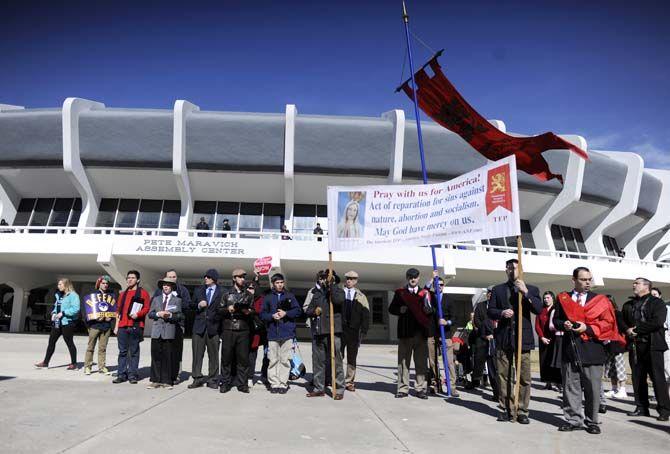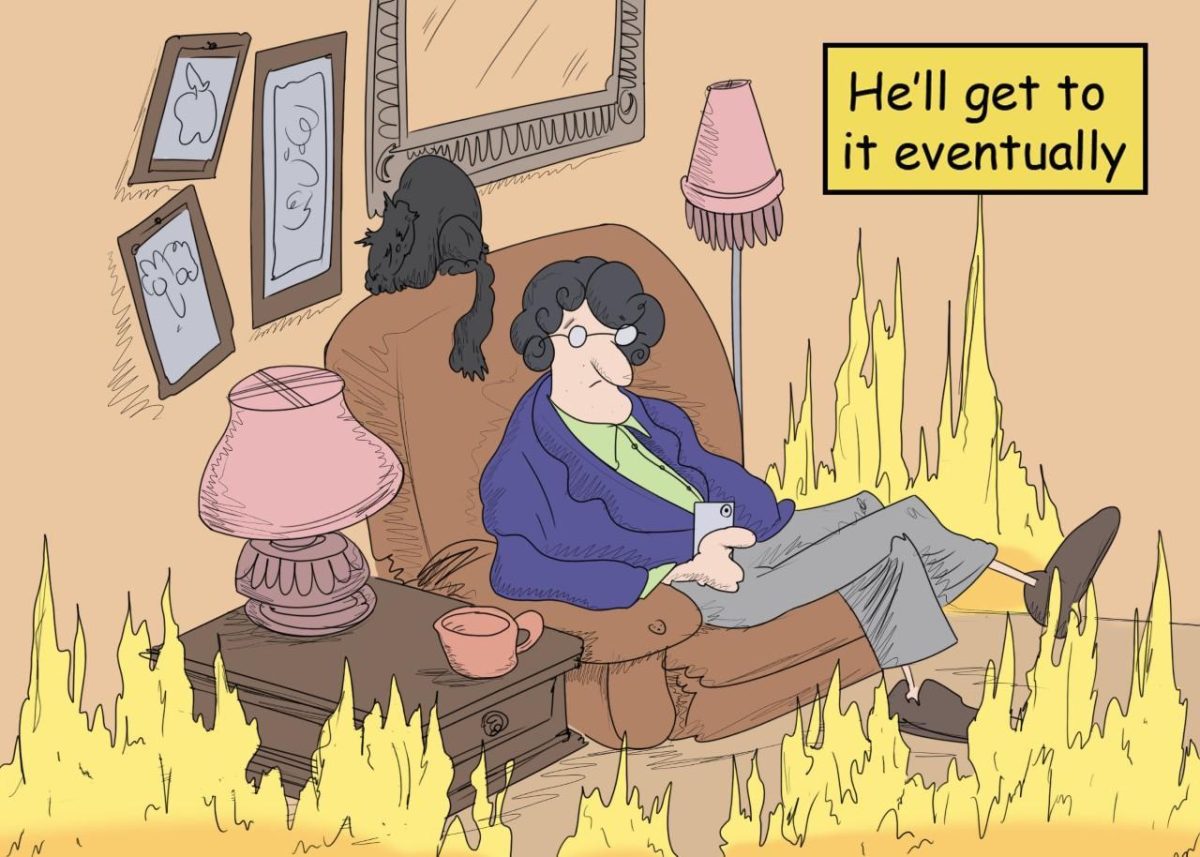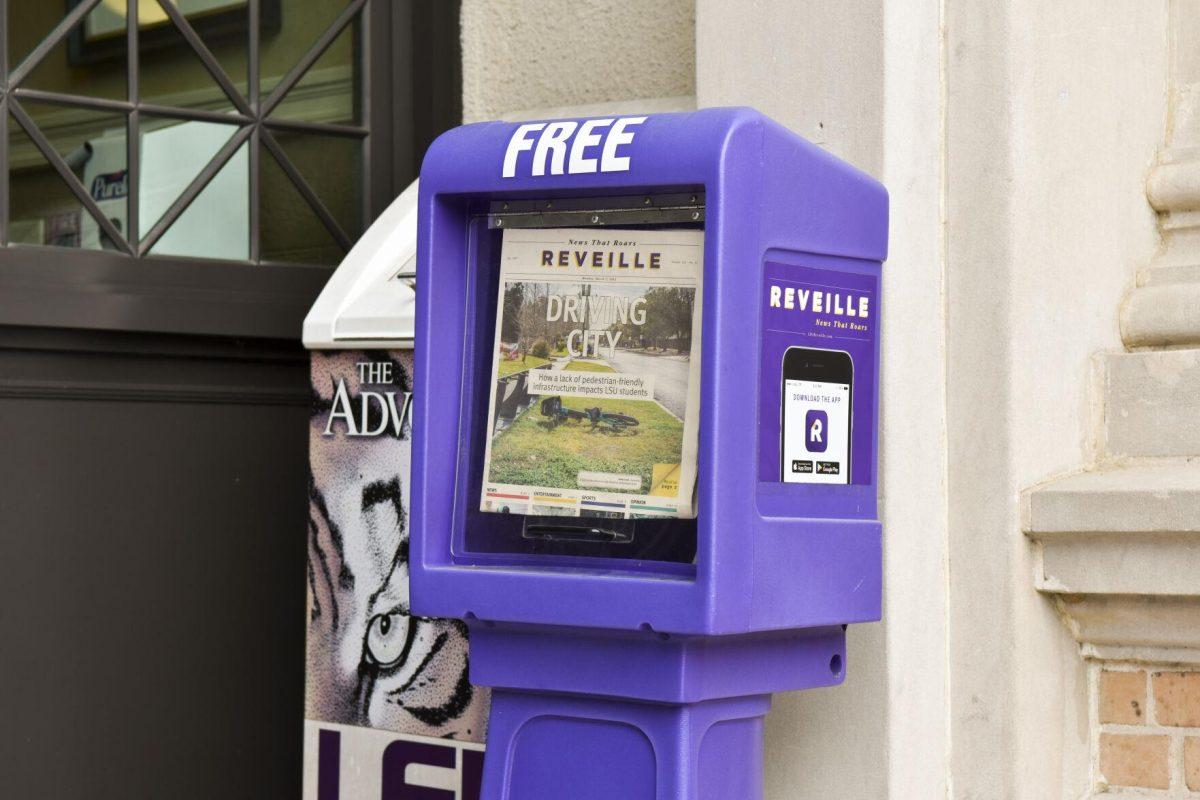By now, you’re probably aware of what happened on campus this weekend. But while “The Response” was big news all around campus, it did not go unchallenged.
According to Organize, Reflect, Act — a Facebook event page aimed at organizing opposition to the prayer rally — 890 people gathered on campus to protest “The Response.” Opposition to the prayer rally centered on The American Family Association’s involvement, budget cuts to higher education and general displeasure with Gov. Bobby Jindal’s policies.
Organize, Reflect, Act included standard protest fair such as marching and picketing at the PMAC during “The Response.” However, the protest lived up to its name with a series of workshops on topics including social media activism, grassroots lobbying, direct action and intersectional coalitions.
The workshops were designed to teach protesters “how to be more effective community organizers in their areas of interest, ranging from social media usage to direct action and more.”
Some strategies for a better protest include spreading news of an event via social media, knowing your rights when it comes to interacting with police and maintaining a peaceful presence.
It is impossible to understate the importance of effective protest. Unfortunately, many people judge the worthiness of a cause by the actions of those who support it. Furthermore, with the advent of social media, any perceived misconduct on the part of protestors is picked up and spread rapidly, often devoid of any context.
We saw it during the Ferguson protests, when efforts of the vast majority to protest peacefully were totally undermined by the violent behavior of a small number of people. Facebook and Twitter were flooded with fiery images of what looked like a warzone.
Sadly, in many cases the conversation shifted from the issue of police accountability to disgust over what were perceived to be lawless, out-of-control riots.
Judging a cause based on its supporters reveals a fundamental flaw in reasoning. A cause cannot be rendered just or unjust by the protesters’ actions. To think this way is to assert that, for minorities, equal treatment under the law is contingent on their behavior.
But the Fourteenth Amendment makes no mention of “earning” equal protection of the laws.
We do not enjoy the Bill of Rights out of merit — we are entitled to it not only as American citizens, but as human beings.
This is not to condone violence in any way. Rather, it is simply to state that when it comes to certain rights, violence and other socially unacceptable forms of protest do not affect whether individuals should receive those rights.
As such, homosexuals do not “owe” society a peaceful protest in exchange for the right to marry any more than African Americans owe society a peaceful protest in exchange for the right to freedom from police discrimination.
Nevertheless, as long as the public feels minorities owe them orderly demonstrations, protesters will have to work as hard as possible to make sure that protests are deemed “acceptable.” In this way, they can ensure news and social media coverage remain focused squarely on the issue at hand.
To this end, Saturday’s workshops were arguably just as important as marching and picketing.
Whether activists like it, they are often the face of a particular issue. This influence extends far beyond witty protest signs and T-shirts. As we learned in Ferguson, effective protests can be the defining factor in how the public perceives a cause.
Poise and dignity — which were on display Saturday — are admirable. In the social media age, they might even be required.
But it is important to remember we are all human, and as such, we don’t owe society for our inalienable rights.
Alex Mendoza is a 22-year-old political science and international studies senior from Baton Rouge. You can reach him on Twitter @alexmendoza_TDR.
Opinion: Protest workshops help legitimize demonstrations
By Alex Mendoza
January 25, 2015
Protesters stand outside the Pete Maravich Assembly Center Saturday, Jan. 24, 2015, after a pro-life march held in support of “The Response.”
More to Discover










